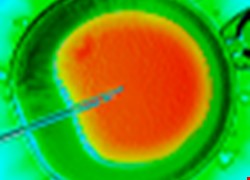最新消息
News & Message
:::
2014/4/29
基因體學研究群
| Laboratory | Scope | 本院重點 | 實驗室 負責人 |
||||
| 遺傳研究中心 Laboratory of Medical Genetics |
蔡輔仁 | ||||||
| 表觀基因體學 實驗室 Laboratory of Epigenetics |
表觀遺傳學 (Epigenetics) 是指基因序列不變之下,基因受到修飾而改變表現活性,此種修飾可以藉由遺傳而影響子代的形性。表觀遺傳作用普遍存在自然界的動植物,也包括人類;同卵雙生的個體也有表觀遺傳上的差異。表觀遺傳學有多種機制,包括 DNA 甲基化、組蛋白修飾 … | ||||||
| 個人化醫學 研究中心 Laboratory for Personalized Medicine |
個人化醫療是指選擇合適的藥物及合適的劑量,在合適的時間治療合適的患者。這種治療模式完全依賴於當代醫學在癌症檢查上的新發展,它使我們能夠在 DNA、RNA 和蛋白質層次上精確而完整地瞭解疾病的性質,能夠在治療前識別出對某種藥物治療可能非常有效的人群 | ||||||
| 分子與基因體流行病學研究中心 Laboratory for Molecular & Genomic Epidemiology |
分子流行病學(Molecular Epidemiology)是應用先進的技術測量生物學標誌的分布情況,結合流行病學研究方法,從分子或基因體研究闡明疾病的病因及其相關的致病過程,並研究疾病的防治和促進健康的策略和措施的科學 Molecular and Genomic Epidemiology Center (MaGEC) is committed to conducting research to enhance and expand our understanding of the distribution and determinants of disease, to promoting collaboration aimed at the translation of research into cost-effective strategies of disease prevention and health care, and to training independent investigators in molecular and genomic epidemiology research and disease prevention. | The goal of our center is to develop metabolomics core facility which will allow for search of additional molecules, to map the enzymatic pathways, to study the physiological and pathologic relevance and explore their potentials as biomarkers for early detection of human disease and as therapeutic agents for chemoprevention and therapy of important human disease. | 陳建仁 | ||||
| 環境質體疾病 研究中心 Environment-Omics-Disease Research Laboratory |
以環境醫學為核心,應用因果相關研究法,跨領域整合研究,調查分析及病流行狀況,探討其與環境或基因因子或兩者之交互作用,並深入以細胞模式、動物模式或其他科學證據、佐證病因之因果相關,提供公共衛生及臨床醫學防治之道,以維護大眾健康 |
|
葛應欽 | ||||



